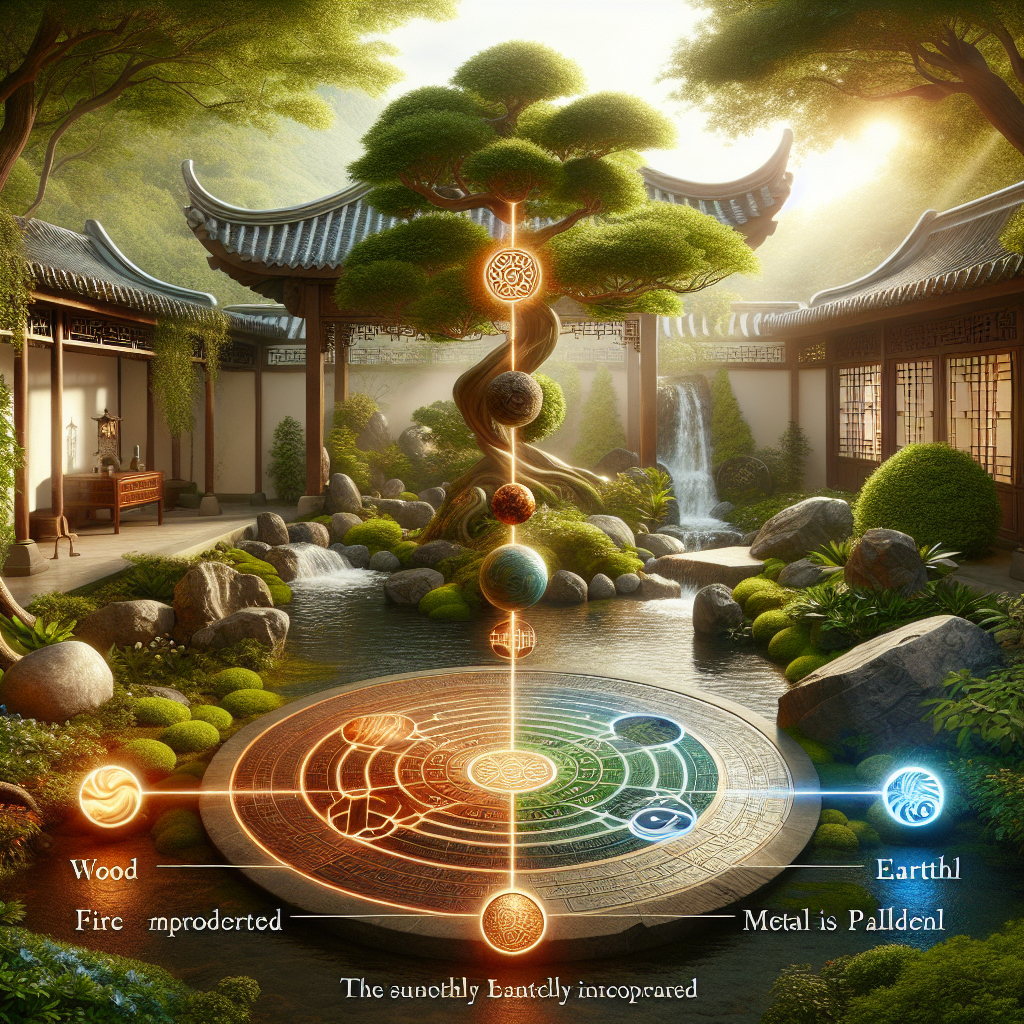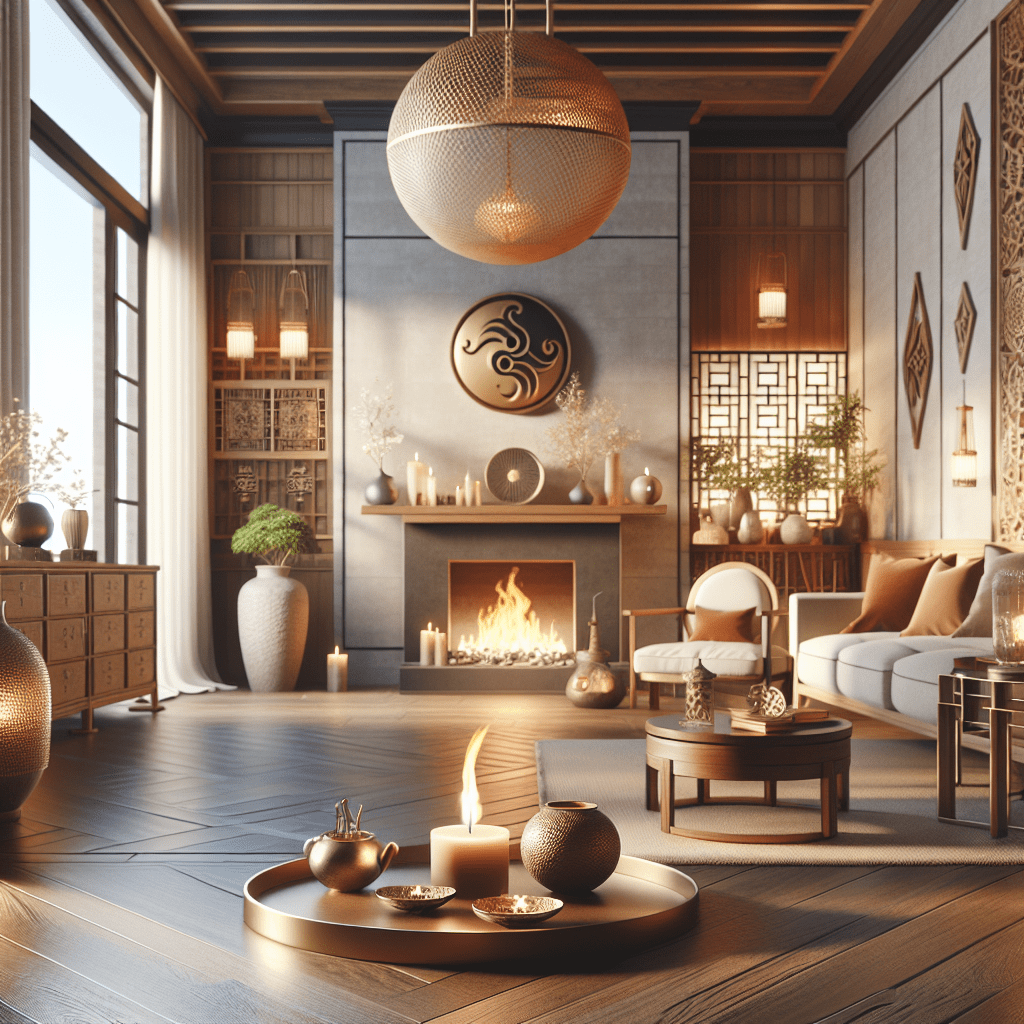Ever walked into a cluttered room and immediately felt your stress levels rise? Or experienced that sense of calm when entering a perfectly organized space? Just as our physical environments affect our mood and energy, our bodies operate on similar principles of internal energy balance.
Think of your body as a living space with its own version of Feng Shui—where energy needs to flow freely for everything to function at its best. When this internal energy balance gets disrupted, it’s like living in a house where the furniture blocks all the walkways, windows are sealed shut, and closets overflow with unused items. Your body, just like that chaotic house, begins to show signs of distress.
The Body’s Living Space: Understanding Internal Energy Balance
When your internal energy is balanced, you experience vitality, mental clarity, and emotional stability. When it’s not, your body sends signals that something needs attention.
Just as Feng Shui practitioners assess the flow of energy in a room, Eastern medicine traditions have long recognized that our bodies require proper energy circulation for optimal health. This internal energy balance affects everything from your physical vitality to your emotional wellbeing and mental clarity.
When your body’s energy pathways become blocked or imbalanced, you might experience a range of symptoms—from persistent fatigue to mood swings, digestive issues, or even more serious health concerns. These aren’t just random occurrences but signals that your internal “living space” needs reorganization.
“Internal energy balance isn’t just some mystical concept,” explains Dr. Mei Zhang, an expert in Eastern medicine. “It’s the foundation of how our bodies maintain homeostasis, adapt to stress, and support healing processes. Modern science is beginning to understand what Eastern traditions have known for millennia—that energy flow affects cellular function.”
Chi: Your Body’s Essential Life Force
At the heart of internal energy balance is the concept of Chi (also spelled Qi), the vital life force that flows through every living being. In Eastern medicine, Chi is the energy that animates us, powers our bodily functions, and connects our physical and spiritual aspects.
Imagine Chi as the electricity flowing through your home. When the current flows freely, lights shine bright, appliances run smoothly, and the environment feels alive. Similarly, when Chi circulates properly throughout your body, you experience vibrant health, mental clarity, and emotional stability.
When Chi becomes blocked or stagnant, it’s like having power outages in certain rooms of your house. You might notice:
- Unexplained fatigue despite adequate sleep
- “Cold spots” in your body that never seem to warm up
- Recurring health issues in specific areas
- Difficulty concentrating or “brain fog”
- Emotional stagnation or mood swings
Chi needs to flow freely through your body’s meridians—energy pathways similar to your electrical wiring. Just as cluttered furniture blocks movement in a room, factors like stress, poor diet, lack of exercise, or emotional suppression can create blockages in your energy circulation.
According to Traditional Chinese Medicine, these blockages eventually manifest as physical symptoms. A 2019 study published in the Journal of Traditional Chinese Medicine found that participants who practiced Chi-balancing exercises for eight weeks reported a 40% reduction in chronic fatigue symptoms and improved sleep quality compared to control groups.
The Yin and Yang Balance: Are You Too Much of One Thing?
Understanding yin and yang is essential for recognizing why you might feel out of balance. These complementary forces need to work in harmony for optimal health.
If you’ve ever seen the iconic black and white yin-yang symbol, you’re looking at perhaps the most elegant representation of balance in Eastern philosophy. This duality represents complementary forces that exist in everything—including your body’s internal energy balance.
Yang energy is active, warming, expanding, and outward-focused. Yin energy is receptive, cooling, contracting, and inward-focused. Both are necessary, and neither is superior—they’re simply different aspects that need to work in harmony.
Signs your yin and yang may be out of balance include:
All yang, no yin: You’re constantly on the go, sleep poorly, feel overheated, and can’t seem to slow down. You might pride yourself on “crushing it” every day but feel internally wired and anxious. Your mind races when you try to relax.
All yin, no yang: You feel perpetually tired, have cold hands and feet, lack motivation, and might struggle with depression or lethargy. Getting started on tasks feels overwhelming, and you often feel physically heavy.
Oscillating extremes: You swing between intense productivity and complete burnout, with little middle ground. One week you’re a powerhouse; the next, you can barely get out of bed.
Seasonal disruption: You feel dramatically different as seasons change, with energy plummeting in winter or anxiety spiking in summer.
Digestion irregularities: You experience alternating constipation and diarrhea, or hunger patterns that swing between ravenous and completely absent.
Jane, a marketing executive and yoga enthusiast, shares her experience: “I was the quintessential ‘yang’ personality—always taking on more projects, exercising intensely, drinking coffee to keep going. I couldn’t understand why I kept getting sick. My acupuncturist explained I was depleting my yin energy. Once I incorporated restorative practices and slowed down, my health dramatically improved.”
The Five Elements: Is Your Internal Energy Ecosystem Balanced?
In Eastern medicine traditions, the Five Elements theory provides another framework for understanding internal energy balance. Each element—Wood, Fire, Earth, Metal, and Water—corresponds to different organs, emotions, seasons, and aspects of health.
Think of these elements as different rooms in your home, each with specific functions that contribute to the overall harmony of your living space:
Wood (Spring): Governs liver and gallbladder function, vision, and planning abilities. When balanced, you feel flexible yet purposeful—like a tree that bends with the wind but maintains its direction of growth.
- Signs of imbalance: Irritability, tension headaches, eye problems, difficulty adapting to change
Fire (Summer): Rules the heart and small intestine, circulation, and joy. Balanced fire energy brings warmth, enthusiasm, and healthy relationships.
- Signs of imbalance: Anxiety, insomnia, heart palpitations, excessive sweating, difficulty with intimacy
Earth (Late Summer): Associated with the spleen and stomach, digestion, and nurturing. Balanced earth energy provides stability, centeredness, and good boundaries.
- Signs of imbalance: Worry, digestive problems, blood sugar fluctuations, feeling ungrounded
Metal (Fall): Connected to the lungs and large intestine, breathing, and letting go. Balanced metal energy allows for clear discernment and healthy grief processing.
- Signs of imbalance: Respiratory issues, skin problems, constipation, difficulty releasing the past
Water (Winter): Linked to the kidneys and bladder, reserves of vitality, and wisdom. Balanced water energy provides deep reserves of energy and courage.
- Signs of imbalance: Fear, lower back pain, urinary issues, exhaustion, feeling constantly depleted
“What makes the Five Elements approach so powerful is its interconnectedness,” explains Dr. Lin Wei, integrated medicine practitioner. “Just as an imbalance in one room affects your entire home, an element out of balance impacts your whole system. The good news is that strengthening one element positively influences the others, creating a ripple effect of healing.”
Practical Feng Shui for Your Body: Restoring Internal Energy Balance
These practical strategies draw from ancient wisdom but fit perfectly into modern life. Even small adjustments can create significant shifts in your energy balance.
Just as you would rearrange furniture to improve a room’s energy flow, there are practical steps you can take to restore your body’s internal energy balance:
1. Clear the Clutter: Detoxify
Physical clutter in your home blocks energy; internal “clutter” does the same to your body. Support your body’s natural detoxification processes by:
- Drinking plenty of filtered water
- Incorporating bitter greens like dandelion and arugula that support liver function
- Practicing intermittent fasting (when appropriate for your constitution)
- Reducing exposure to environmental toxins in food and personal care products
2. Open the Windows: Breathe
Proper breathing is like opening windows to allow fresh air into a stuffy room. Try this simple practice:
- Breathe deeply into your lower abdomen for a count of four
- Hold briefly
- Exhale slowly for a count of six
- Repeat for 5 minutes daily to move stagnant energy
3. Balance Your Design Elements: Nutrition
Just as a well-designed room incorporates various elements harmoniously, your diet should include foods that support all Five Elements:
- Wood: Sour foods like lemon, vinegar, and fermented vegetables
- Fire: Bitter foods like dark leafy greens, coffee, and dark chocolate
- Earth: Sweet foods like sweet potatoes, rice, and moderately sweet fruits
- Metal: Pungent foods like onions, ginger, and garlic
- Water: Salty foods like miso, seaweed, and quality sea salt
4. Create Rhythm: Movement and Rest
A balanced home has spaces for activity and relaxation. Similarly, your body needs both movement and rest:
- Incorporate gentle practices like qigong, tai chi, or yoga to move energy without depleting it
- Balance intense activity with adequate recovery time
- Honor your body’s natural rhythms by aligning with daylight when possible
- Prioritize quality sleep as the ultimate restorative practice
5. Connect with Natural Elements: Nature Immersion
Just as bringing plants indoors improves a room’s energy, connecting with nature balances your internal elements:
- Walk barefoot on natural surfaces when possible
- Spend time near water for emotional balance
- Get adequate sunlight for vitamin D and circadian rhythm regulation
- Bring elements of nature into your home with plants, natural materials, and sounds
Mark, a software developer who struggled with chronic fatigue, shares: “I was skeptical about these Eastern approaches to health, but after six months of incorporating these practices, my energy levels have completely transformed. What surprised me most was how small changes—like regular breathing breaks and adjusting my diet seasonally—made such a dramatic difference.”
The Continuous Journey of Balance
Maintaining internal energy balance isn’t a one-time fix but a continuous practice of awareness and adjustment. Just as you wouldn’t expect to clean your house once and have it stay pristine forever, your body’s energy needs regular attention and care. Recognizing when your energy flow becomes stuck is the first step to restoring balance.
The good news is that your body wants to be in balance. It naturally gravitates toward harmony when given the right support. By paying attention to subtle signals before they become major problems, you can make minor adjustments that prevent larger disruptions.
This approach to health—focusing on energy balance rather than just symptom management—represents the essence of Eastern medicine’s preventative wisdom. It’s about creating conditions where health can flourish naturally, rather than fighting against the body’s processes.
As modern life grows increasingly complex and demanding, these ancient principles of internal energy balance become even more relevant. They offer a roadmap back to our natural state of wellbeing and vitality.
With tools like EASTCHI AI from HerbalsZen, these time-tested principles become accessible to everyone. By analyzing your unique constitutional type through Five Element Theory and providing personalized recommendations, such technology bridges ancient wisdom and modern convenience, helping you maintain internal energy balance in today’s fast-paced world.
Your body, like your home, deserves to be a harmonious space where energy flows freely. By recognizing the signs of imbalance and taking steps to restore proper flow, you can transform chaos into clarity and exhaustion into vitality. After all, the most important space you’ll ever organize isn’t your office or living room—it’s the home you live in every day: your body.



